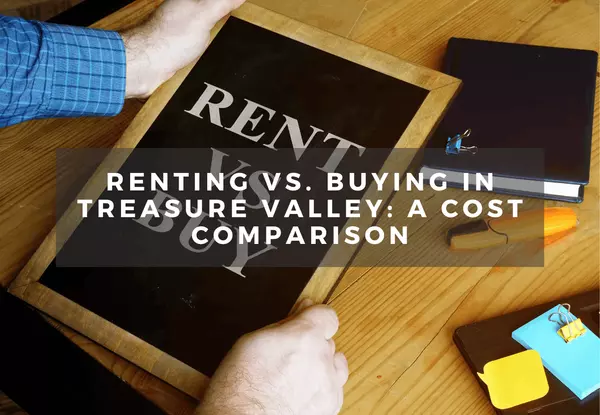Selling Idaho Real Estate in 2025: Capital Gains, Exemptions & 1031 Exchange Strategies

Navigating Tax Implications When Selling Idaho Real Estate in 2025
Selling real estate in Idaho can be a lucrative endeavor, but it's essential to understand the tax implications involved. In 2025, Idaho's tax laws, combined with federal regulations, present opportunities and challenges for property sellers. This guide will delve into capital gains considerations, available exemptions, and the strategic use of 1031 exchanges to optimize your financial outcomes.
Understanding Capital Gains Taxes in Idaho
Federal Capital Gains Tax
At the federal level, capital gains taxes apply to the profit made from selling an asset, such as real estate. The tax rate depends on your income and how long you've held the property:
-
Short-Term Capital Gains: For properties held for one year or less, gains are taxed as ordinary income, with rates ranging from 10% to 37%.
-
Long-Term Capital Gains: For properties held longer than a year, the tax rates are 0%, 15%, or 20%, depending on your taxable income.
Additionally, high-income earners may be subject to the Net Investment Income Tax (NIIT) of 3.8%.
Idaho State Capital Gains Tax
Idaho treats capital gains as regular income, subjecting them to the state's flat income tax rate. As of 2025, this rate is 5.8% . However, Idaho offers a capital gains deduction of up to 60% for qualifying Idaho property . This means that if your property qualifies, you can deduct 60% of the capital gain from your Idaho taxable income, significantly reducing your state tax liability.
Exemptions to Capital Gains Taxes
Primary Residence Exclusion (Section 121)
If the property you're selling is your primary residence, you may be eligible for the Section 121 exclusion, which allows you to exclude up to $250,000 of capital gains from your income ($500,000 for married couples filing jointly) . To qualify:
-
You must have owned the home for at least two years.
-
You must have lived in the home as your primary residence for at least two of the five years preceding the sale.
This exclusion can be claimed once every two years.
Step-Up in Basis for Inherited Property
When you inherit property, the step-up in basis provision adjusts the property's cost basis to its fair market value at the time of the previous owner's death. This means that if you sell the inherited property, you may owe little to no capital gains tax, depending on the sale price .
Leveraging 1031 Exchanges to Defer Taxes
A 1031 exchange, named after Section 1031 of the Internal Revenue Code, allows you to defer capital gains taxes by reinvesting the proceeds from the sale of an investment property into a like-kind property.
Key Rules for 1031 Exchanges
-
Like-Kind Property: Both the relinquished and replacement properties must be held for investment or business purposes and be of like-kind.
-
Identification Period: You have 45 days from the sale of your property to identify potential replacement properties.
-
Exchange Period: The purchase of the replacement property must be completed within 180 days of the sale.
-
Qualified Intermediary: You must use a qualified intermediary to hold the proceeds from the sale until the exchange is complete.
Benefits of 1031 Exchanges
-
Tax Deferral: Defer paying capital gains taxes, allowing more capital to be reinvested.
-
Portfolio Diversification: Exchange into different types of investment properties to diversify your holdings.
-
Increased Cash Flow: Potentially acquire properties with better income potential.
In Idaho, properties eligible for 1031 exchanges include multifamily apartments, healthcare facilities, self-storage units, retail centers, industrial warehouses, student housing, oil and gas investments, and agricultural land.
Strategic Considerations for Idaho Property Sellers
-
Assess Property Use: Determine if your property qualifies for the primary residence exclusion or a 1031 exchange.
-
Calculate Potential Gains: Estimate your capital gains and consider the impact of federal and state taxes.
-
Consult Professionals: Engage with tax advisors and real estate professionals to navigate complex transactions and ensure compliance with all regulations.
-
Plan Ahead: If considering a 1031 exchange, begin planning early to meet all identification and exchange deadlines.
Conclusion
Selling real estate in Idaho in 2025 involves careful consideration of tax implications. By understanding capital gains taxes, leveraging available exemptions, and utilizing strategies like 1031 exchanges, you can optimize your financial outcomes. Always consult with qualified professionals to tailor these strategies to your specific situation.
Ready to make a move to Boise, Idaho?
📞 Call or Text Curtis at (208) 510-0427
📧 info@chismteam.com
📥 Ready to relocate remotely? Download our Boise Relocation Guide
Categories
Recent Posts










